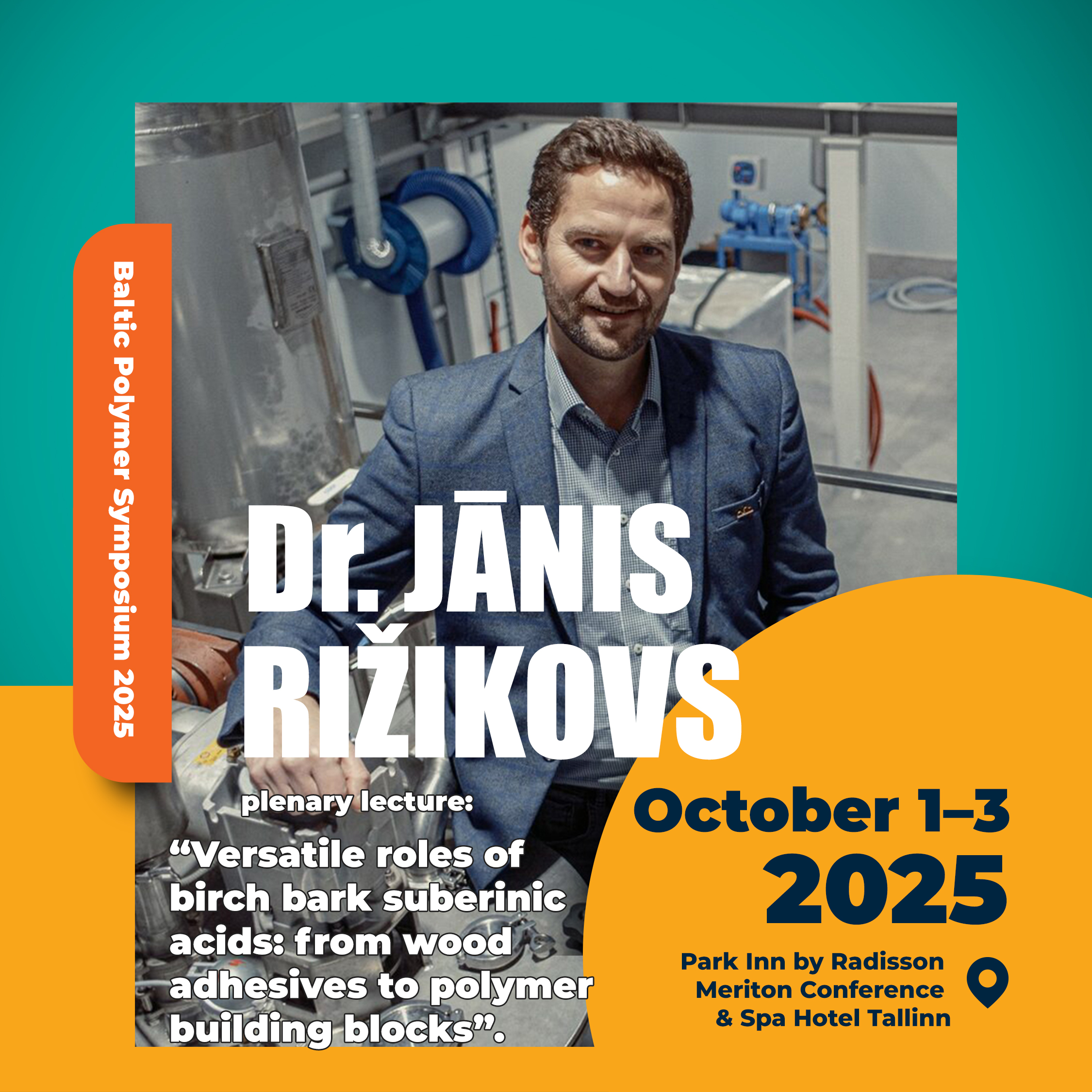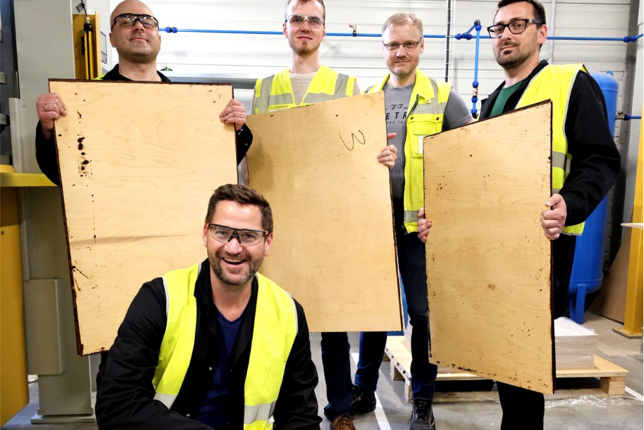From Residue to Innovation: Dr. Jānis Rižikovs on the Hidden Potential of Birch Bark
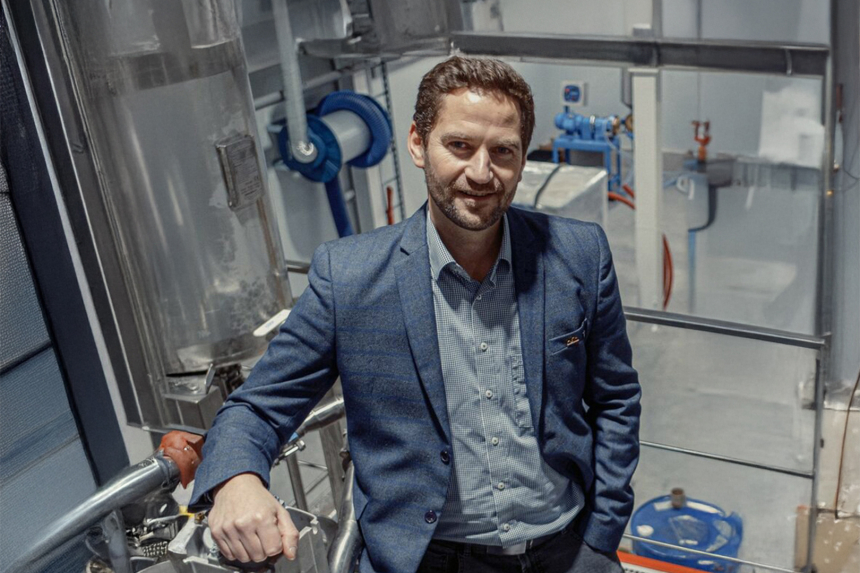
Dr. Jānis Rižikovs, Head of the Biorefinery Laboratory and Leading Researcher at the Latvian State Institute of Wood Chemistry, Corresponding Member of the Latvian Academy of Sciences, is one of those scientists who can see value where others see only residues. His team research on birch outer bark and other forestry by-products has led to innovative solutions – from extracts used in cosmetics to the world’s first fully bio-based adhesive for plywood with the highest water-resistance class. Under his leadership and collaboration, technologies have been developed that not only reduce dependence on fossil resources but also create a strategic niche for Latvia in the bioeconomy and materials science.
For this work, Dr. Rižikovs and his colleagues have received the prestigious “Golden Cone” award for contributions to the industry, as well as the “Outstanding Paper Award” from Materials Horizons for next-generation water-resistant wood coatings. As a Corresponding Member of the Latvian Academy of Sciences and an expert in international projects, he embodies the essence of a modern scientist – combining academic excellence with an innovator’s vision and the ability to create practical solutions with global impact.
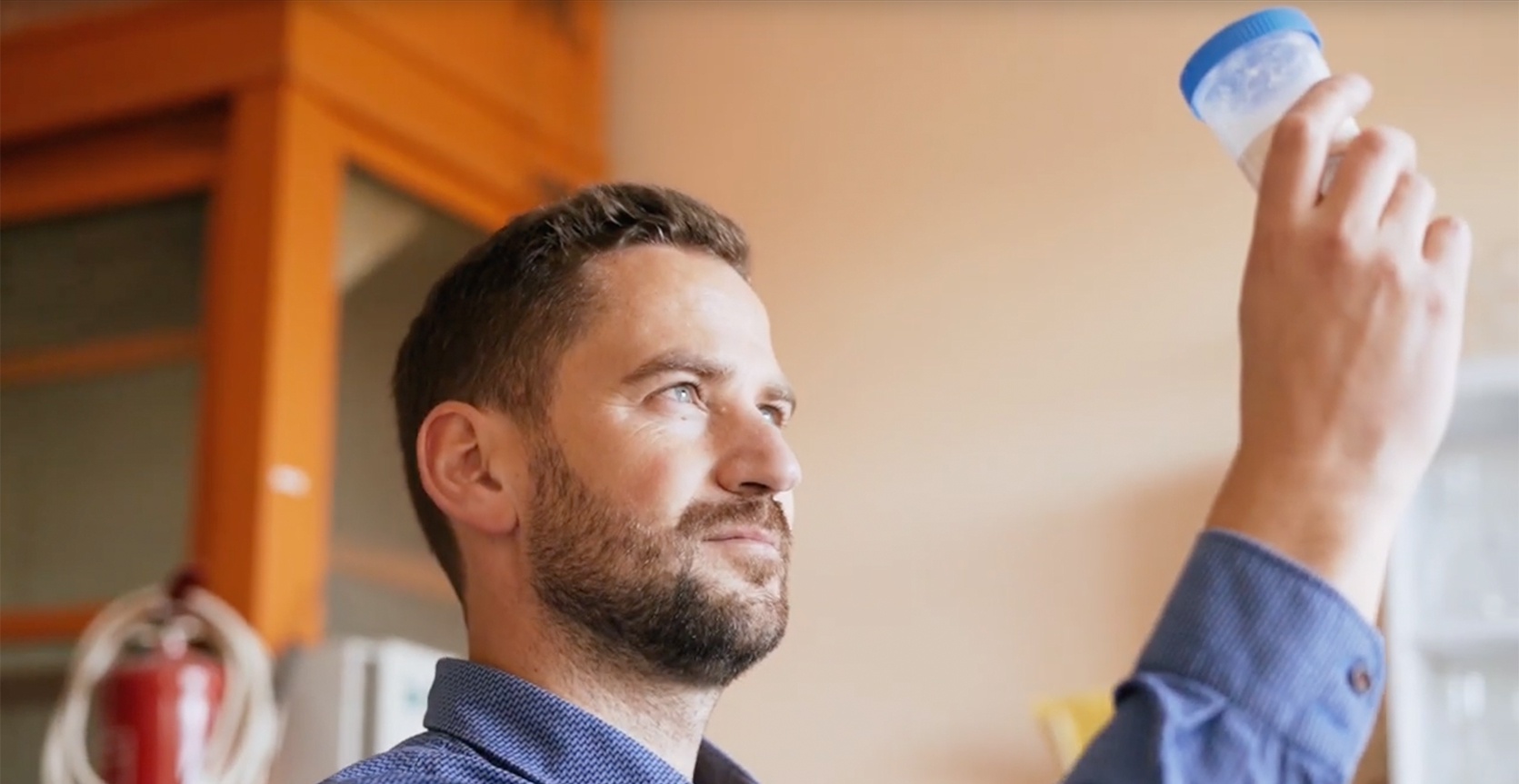
Video frame from the 2020 calendar #ScienceForLatvia produced by the Ministry of Education and Science
A vivid example of this impact is the close cooperation between the Institute and its long-standing industrial partner Latvijas Finieris. On January 15, 2025, the company launched the construction of a new lignin-based resin plant. The facility will produce 45,000 tons of lignin-phenol-formaldehyde resins annually, replacing fossil phenol with wood-derived lignin in plywood production for construction, finishing, and the transport industry. Such a large-scale lignin valorisation plant is unique not only in Latvia but also in the whole of Europe.

Jānis Rižikovs in an interview with the news portal Delfi (photo: Kārlis Dambrāns)
This autumn, Dr. Rižikovs’ scientific work will be highlighted on the international stage. From October 1–3, the 23rd Baltic Polymer Symposium (BPS2025) will take place in Tallinn – the leading forum for polymer science in the Baltics and beyond, which since 2001 has brought together researchers and industry representatives from more than 15 countries. The program will feature plenary sessions with world-class experts, thematic discussions, and informal networking, creating fertile ground for new ideas and collaborations.
At the symposium, Dr. Jānis Rižikovs will deliver a plenary lecture titled “Versatile roles of birch bark suberinic acids: from wood adhesives to polymer building blocks”. His presentation will highlight the versatile applications of birch bark suberinic acids – from natural adhesives for wood materials to innovative polymer building blocks that open the way to new functional and composite materials.
Before this keynote, we invited Jānis for a conversation about his research, its impact, and the insights he will share at the symposium.
LSIWC: How do you evaluate the significance of the Baltic Polymer Symposium in the context of Baltic and international polymer science?
Jānis Rižikovs: For more than two decades, the Baltic Polymer Symposium has been a platform bringing together researchers and industry representatives from across Europe. It is not only a regional but also an international event where the latest discoveries are presented and new collaborations are established. The BPS contributes to strengthening the competitiveness of Baltic scientists in the global field of polymer materials.
LSIWC: Which of your studies on birch bark suberinic acids will be at the core of your plenary lecture in Tallinn, and why?
Jānis Rižikovs: I plan to share as much as possible about this unique natural polymer that can be obtained from a by-product of wood mechanical processing – birch bark. I will focus on the use of suberinic acids as a natural binder in wood-based panels and composite materials, in the development of polyols and polyurethane foams, as well as in solid wood impregnation and coatings. These solutions not only improve the physical and mechanical properties of the resulting products but also reduce the use of formaldehyde and other synthetic raw materials, while opening up new opportunities for the bioeconomy.
LSIWC: How do the LSIWC solutions based on birch bark suberinic acid research differ from previous directions and approaches?
Jānis Rižikovs: Unlike other natural binders, our suberinic acid solutions do not require synthetic additives or modifiers – they function on their own, maintaining ecological purity. Moreover, they combine several functions – adhesive, hydrophobizing, and even biologically active properties.
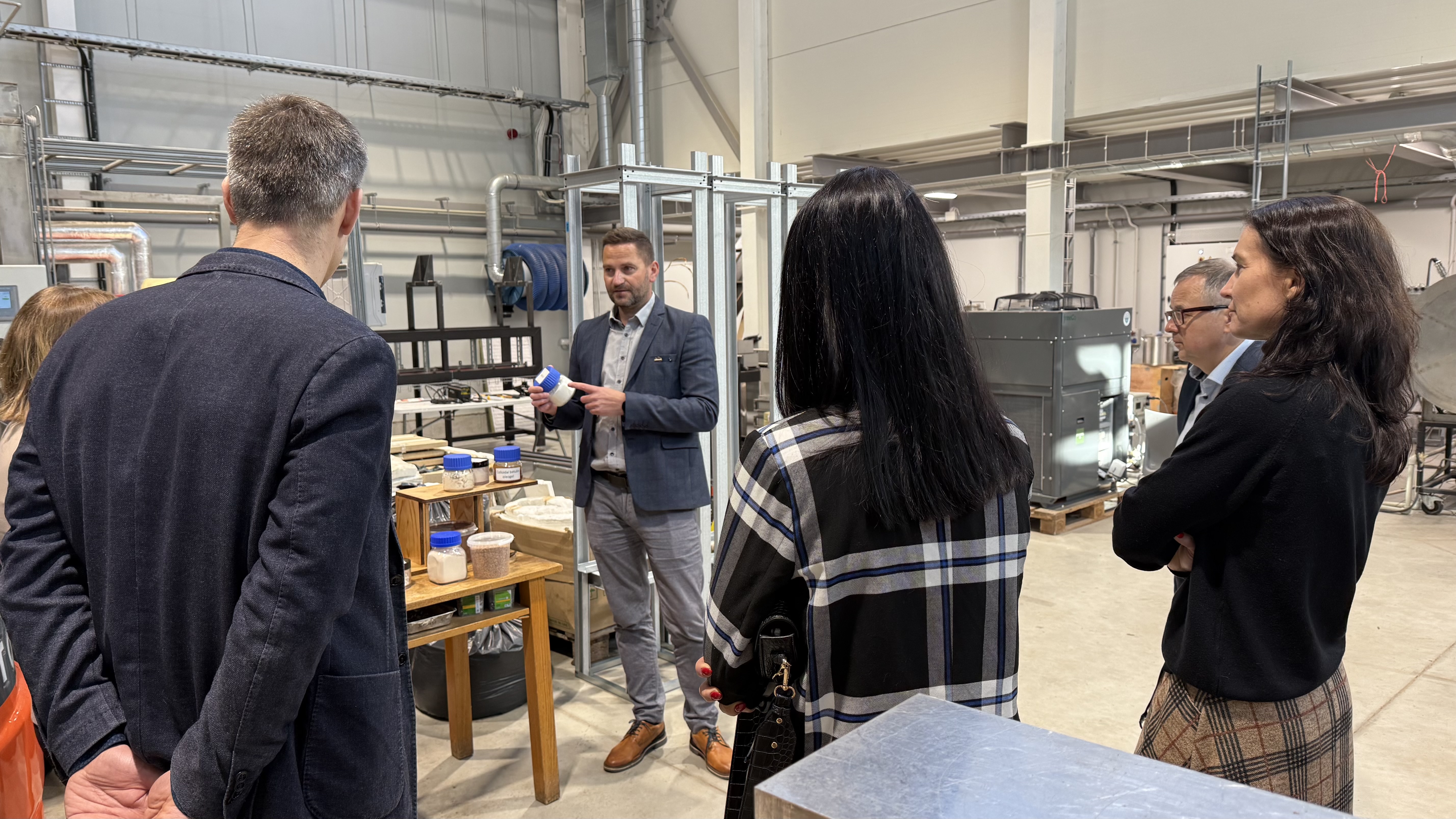
LSIWC: How do you see the impact of your research? How can it contribute to the development of the bioeconomy and sustainable materials not only in Latvia but also internationally?
Jānis Rižikovs: This research helps transform by-products of the forestry and wood processing industries into higher value-added products. This means both reducing dependence on fossil resources and creating new bioeconomy research niches with export potential. The impact is twofold – environmental protection and the creation of new markets.
LSIWC: Which plenary lecture at the symposium are you most looking forward to, and why?
Jānis Rižikovs: I am particularly interested in lectures on new functional biopolymers and bio-inspired systems. These are directions where I see strong connections with our suberinic acid research and potential synergies.
LSIWC: How could participation in such international forums be useful for young researchers and students?
Jānis Rižikovs: Events like these provide a unique opportunity to gain an international perspective, meet leading scientists in their field, and establish collaborative contacts. It is an environment where future joint projects and ideas are born.
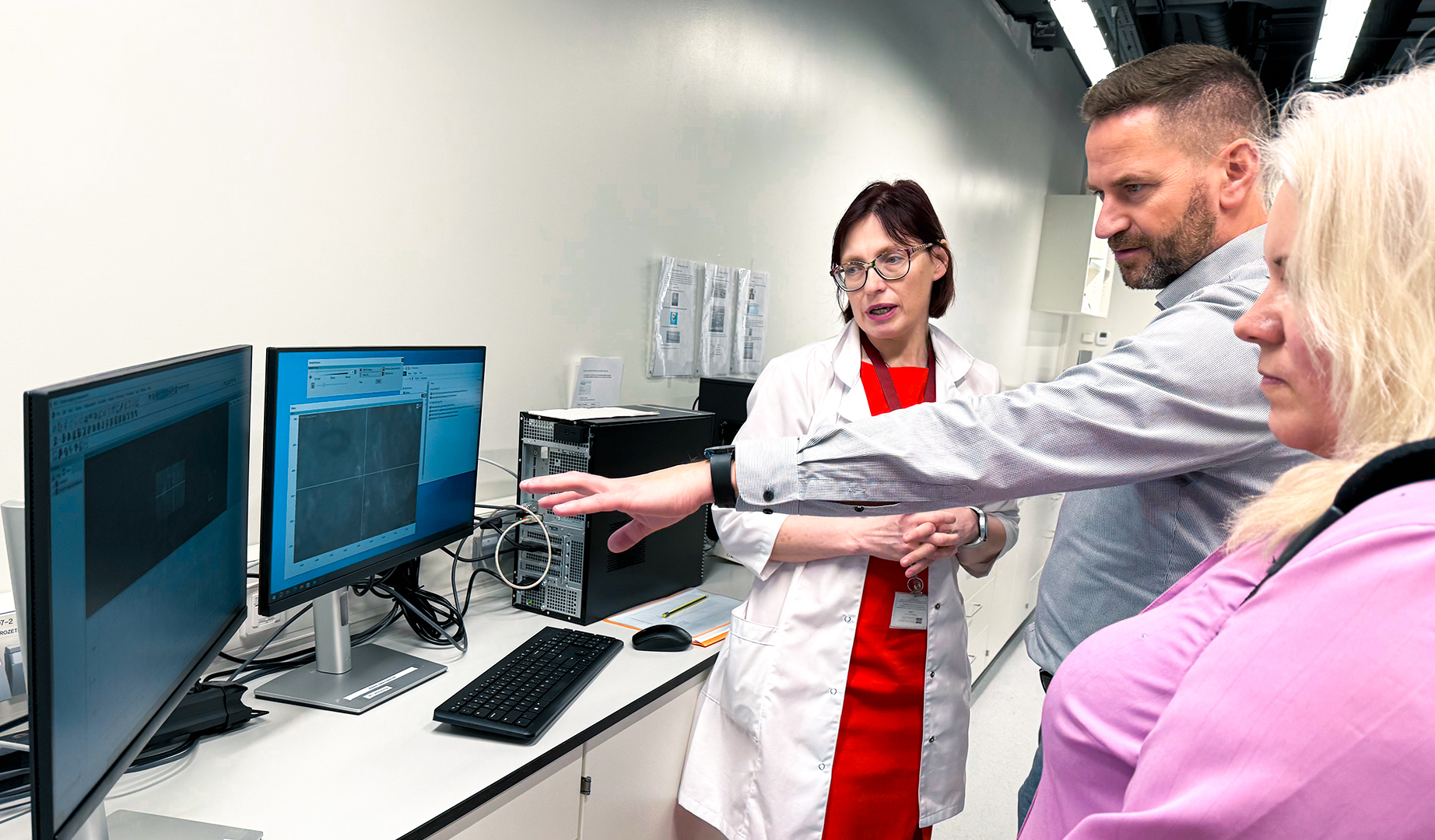
LSIWC: How do you see the role of the LSIWC Biorefinery Laboratory in the future of polymer science in Latvia and Europe?
Jānis Rižikovs: Our laboratory is one of the few in Europe that covers the processing of various production by-products into sequential products, with a particular focus on zero-waste technologies. A great example of this is the full-cycle processing of birch bark into betulin-containing extracts and suberinic acid mixtures, with complete characterization of raw materials and final products, as well as their applications in different materials. All of this has been achieved over many years through collaboration with specialists from other fields, various research institutions, laboratories and industries. I see us as a strategic partner both in science and in industry, particularly in the field of sustainable materials.
